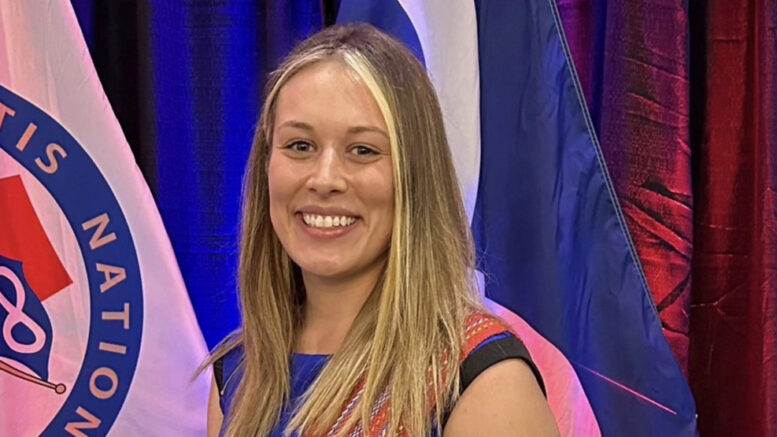By Jeremy Appel, Local Journalism Initiative Reporter
(ANNews) – A new provincially funded addictions recovery community is slated to open in Smoky Lake County, located near Métis Crossing, in 2026.
The Healing Waters Recovery Community will offer free, culturally appropriate treatment for Métis people, including opioid agonist therapy, counselling, employment support, financial and other support, for up to 300 people a year, the Otipemisiwak Métis Government announced in August.
Kaila Mitchell, the Otipemisiwak secretary for mental health and addictions, emphasized in an interview with Alberta Native News that while the recovery centre is open to anyone seeking treatment, its programming will be oriented towards Métis people in Alberta.
“Our culture is healing, and when you’re disconnected from your culture, it creates a sense of isolation and lack of identity,” said Mitchell.
“Participating in your culture and feeling grounded in who you are is really important. It’s a huge determinant of mental health. People don’t tend to, from my experience, finish programming in places where they don’t feel welcome or where they feel out of place.”
To that end, she said, it was important to have the recovery community located near Métis Crossing.
“It’s land that’s tied to Métis past and present, it’s a beautiful area, and it will help create that strong cultural foundation for people who get on the land treatment in their recovery journey while they’re at the facility,” Mitchell explained.
The Healing Waters project was originally a “dream” of the late Métis Elder Herb Belcourt, which was corroborated by feedback from many Métis Nation of Alberta citizens, said Mitchell.
The nation then held engagement sessions with county residents to inform them of where the facility was slated to be built and how many jobs it would bring to the community.
According to Mitchell, Healing Waters will have somewhere between 40 to 60 full-time staff, who will deliver programming developed by the Otipemisiwak’s Métis Government’s Health Department.
The Alberta government, which has committed to building a “recovery-oriented system of care,” has been supportive throughout the process.
The province has committed $35 million to construct the facility and will be providing operational grants once it opens.
“This partnership will provide life-saving addiction treatment to those in need and rebuild families and communities affected by this disease,” Minister of Mental Health and Addiction Dan Williams said in an Aug. 16 joint statement with the Otipemisiwak Métis Government, referring to addiction.
The provincial government has committed to building 11 recovery communities across the province, five of which are planned for Indigenous communities, including Healing Waters.
According to documents obtained by APTN News, the four First Nations with recovery communities being built on their territory—Blood Tribe, Enoch, Siksika and Tsuut’ina—have stopped implementing the province’s recovery addiction treatment policy, due to concerns that it was drafted without Indigenous consultation.
A key concern is that treatment centres are required to use the My Recovery Plan app, which collects patients’ personal health information and stores it in a private database that is outside First Nations’ control.
Organizations that use the app are forced to sign a non-disclosure agreement which prohibits them from criticizing the company.
Mitchell said this isn’t a concern the Otipemisiwak Métis Government shares at the moment.
“Our First Nations cousins can speak for themselves, and we absolutely honour their voice, but right now there’s not a lot to comment on, because we’re focused on the development of our truly incredible recovery continuum,” she said.
Mitchell added that the Alberta government “has been a really good partner on this recovery centre initiative.”



Be the first to comment on "Métis recovery community in Smoky Lake County scheduled to open in 2026"